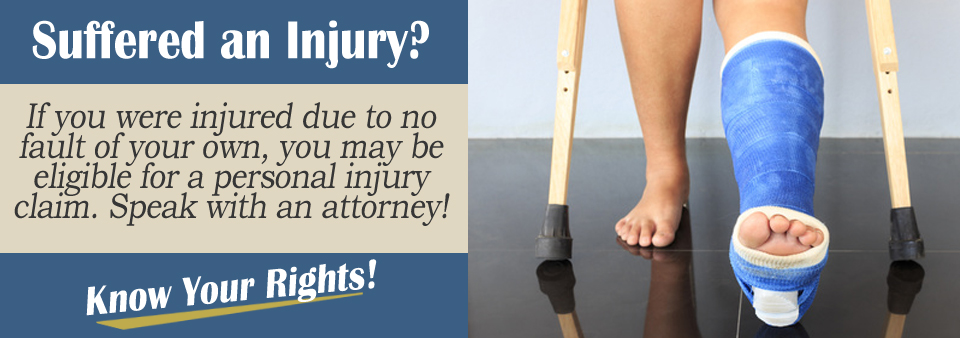Accidents can happen anywhere. Sometimes, they are simply due to carelessness. If you fall off a ladder in your own home, or cut yourself with a carving knife, you may only have yourself to blame. Many accidents happen away from your own home, though. They can happen while you are at work, on a sidewalk, on a busy highway or in a store, restaurant, bar or shopping center.
Generally, private property owners, as well as government entities such as city councils, take out premises liability insurance which is designed to cover them if an accident on their property leads to injuries that might be blamed on them. A general liability claim may be made if someone is injured on government or private property as long as that person was there legitimately.
Slip and Fall Injuries May Result in a General Liability Claim
There are different types of accidents that can happen on a property that is not your own. You could slip, trip or fall over, fall down a flight of stairs, get hit by something falling from a height, suffer an electric shock, or be burned or scalded by something that is unexpectedly hot. There are numerous ways you can be injured, but slip and fall accidents are likely the most common. However, slip and fall cases often involve claiming compensation from a property owner’s general liability insurance.
Factors That Affect Your Right to File a General Liability Claim
In order for you to obtain compensation from a property owner after an injury on their property, certain circumstances must apply.
You must be legally allowed on that property. For example, any visit to a shopping center in opening hours is legal. If you have entered someone’s front yard without them knowing (unless you are a postal worker or delivering freight) and then slip, they may not be liable.
You must have proof that negligence caused any injuries you have suffered. For example, if you fall in a supermarket, there must be proof that this was due to staff ignoring a slippery mess on the floor or due to another preventable reason. If the hazard that caused the accident only appeared just before you slipped, the owner would likely not be liable.

A Personal Injury Attorney Can Provide Valuable Advice After an Accident
Questions of liability, and whether you have sufficient grounds to make a personal injury claim, can be problematic. You are strongly advised to discuss the accident with an experienced personal injury attorney before filing a claim. The attorney will be able to give an opinion regarding your chances of success, based on their interpretation of who is liable and what evidence you need to support your claim.